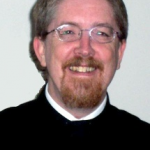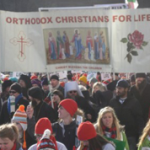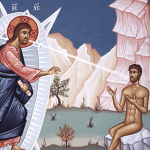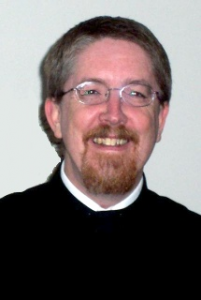Deprecated: trim(): Passing null to parameter #1 ($string) of type string is deprecated in
/home/aoiusa/public_html/wp-content/plugins/sexybookmarks/public.php on line
388
Deprecated: trim(): Passing null to parameter #1 ($string) of type string is deprecated in
/home/aoiusa/public_html/wp-content/plugins/sexybookmarks/public.php on line
394
Deprecated: trim(): Passing null to parameter #1 ($string) of type string is deprecated in
/home/aoiusa/public_html/wp-content/plugins/sexybookmarks/public.php on line
400
 Source: Koinonia
Source: Koinonia
Much like the Catholic Church, Mainline Protestant denominations and Evangelical Christians, the Orthodox Church is struggle to decide whether or not Christ has called us to take an active or a passive role in the world. By his example, Metropolitan Jonah has said we should be active–even proactive–while his critics, either out of fear of, or agreement with, the spirit of the age have opted for passivity. This at least is the conclusion that I would draw from the recent Washington Post profile piece about his Beatitude (you can read it here and my post on it here).
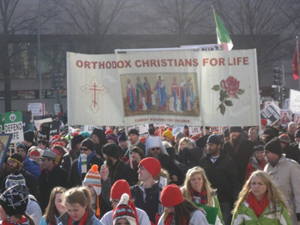
It seems clear that the Orthodox Church in America is internally divided between those who would rather not step out into the public square with the Gospel and those like his Beatitude are ready, willing and eager to do so. As in every human decision, people do or don’t do for a mix of reasons and just because two people agree on a course of action doesn’t mean they have the same motivation or goal. Some Orthodox Christians do not want to step into the public square because they are timid. But others really and truly want to see a naked, secular, public square. Yes, as in the wider culture, abortion and homosexuality are the hot button issues, but the underlying issue is the role of the Church in a civil society. The Metropolitan’s critics are arguing the Church has no role in the public square or, if it does, it must be subservient to the larger society.
What concerns me is not simply that there is a (hopefully) small minority in the Church who support a naked public square, legalized abortion and gay “marriage.” While I know there are senior clergy and lay leaders who simply reject the moral tradition of the Church on these issues, I think that their gentle apostasy has taken hold not because their arguments are convincing but to fill a vacuum. Having served in Rust Belt parishes, I know that many of the communities East of the Mississippi are simply afraid for their futures. Especially as the economy has shifted they’ve seen their own incomes drop and their children move away. Whether intentionally or not a minority is exploiting those who are afraid.
I’ve read the critics. Frankly their position is based in fear. Again and again they offer a variation of the argument that in some, unspecified way, Metropolitan Jonah is destroying the OCA. They don’t offer any proof, much less a concrete alternatives save to remind us that the best thing to do what we’ve always done. This is the same argument you hear in so many of our shrinking parishes. There people hold to the understandable, but false, hope that, somehow, we can go back to the days when the mills were running, the economy humming, our parishes were full and we could hope to see our children’s children marry and raise a family. Saying that we just need to do what we’ve always done is cruel because it exploits the fears of those who have already lost so much because of economic dislocation and demographic shifts.
It is worth noting that with maybe one or two exceptions, Metropolitan Jonah’s critics are from the former centers of American Orthodoxy. His Beatitude’s supporters on the other hand come from the South and West, areas of the country where the Church is growing. Like it or not, in New England, the Mid-Atlantic and throughout the Rust Belt and the Mid-West, gone are the days when Orthodoxy was a cultural and familial given. So yes, there is certainly a liberal/conservative dynamic in all this. But I think we should not discount the pain and fear of people who have suffered economically as well as spiritually. It is a sad irony that in rejecting Metropolitan Jonah, the suffering Orthodox Christian communities in New England, the Mid-Atlantic region, and the formerly industrial Mid-West are rejecting an approach to Church life that offers the best hope for the long-term viability of their parishes as well as for keeping their children and their children’s children in the Church.
Whether or not the Orthodox Church has a future in America—and I think it does—it only does to the degree that it looks like Metropolitan Jonah. Like it or not, and there are those who don’t like it, his face is the face of the Church’s foreseeable future. What he brings to the table is an approach to Church life that is frankly and unapologetically entrepreneurial and not managerial. More to the point, it is an approach that builds the Church numerically and spiritually. Let me explain.
To those accustomed to the top-down approach, the bottom-up approach of an entrepreneur can often seem impulsive, chaotic and (ironically) autocratic. But it isn’t, or it need not be. It is a style that favors local knowledge over the theoretical knowledge of centralized, and centralizing, administrative authority. Being entrepreneurial doesn’t mean that Holy Tradition is discounted but rather that the Tradition is put at the service of helping the individual, the parish, and the diocese more fully understand and incarnate their unique vocations within the context of the whole Church. Do this and the Church grows quantitatively and qualitatively.
Unfortunately we have generally taken a more managerial and bureaucratic approach that says the individual believer, the local parish and diocese are at the service of the central Church administration. This is a constant complaint across all the Orthodox jurisdictions; the local serves the “universal,” whether that “universal” is the parish, the diocese or whatever form the national Church takes in the given jurisdiction. And just as the entrepreneurial approach builds the Church, the best managerial approach can offer is managed decline.
If my analysis is correct I think it goes a long way to understand why some are upset by Metropolitan Jonah. Especially in the historical centers of American Orthodox experience, what is unique in to the person or the parish has often been minimized if not ignored and even rejected. Our managerial approach to Church polity has historically often confused communion with conformity and consensus with capitulation to the group. And it has done so to the detriment of the individual believer (clergy AND laity), parish and diocese. To those who have become conditioned to think of Church life as a zero sum game (which more often than not means “I” lose and “they” win) an entrepreneurial approach, that is to say an unapologetic evangelical approach that embraces an explicit proclamation of the Gospel in the public square, would be terrifying. We are wrong when we think that new people, new ideas, can only come at our expense.
So I’m clear, this fear is understandable but wrong and based in a Satanic lie and must not be allowed to take hold in our hearts, in our parishes or our dioceses.
Yes, there is a power struggle in the OCA and really in all the Orthodox jurisdictions in America. I would even suggest that this conflict is being played out internationally among all the Orthodox Churches and it is happening for the same reasons we see it in America—we’ve adopted an implicit zero sum model of Church that confuses position with self-aggrandizement. But in Christ power, ecclesiastical or civil, is always in the service of others and His promise to us is that we will spread to the ends of the earth and always overcome the powers of sin and death.
Ironically the power struggle in the OCA isn’t the result of Metropolitan Jonah seeking power for himself. Rather it is rooted in his working to empower those who have historically been on the margins of life in the OCA. Yes, this wider dispersal of power does come at the expense of those who rather hold on to power for themselves—the gatekeepers in parishes, diocese and central Church bureaucracies will lose out—but for the majority of the faithful, laity, clergy and the bishops, this shift will be beneficial. It will even benefit the gatekeepers if only they will embrace it.
In Christ,
+Fr Gregory
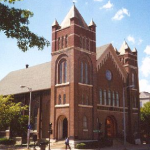
 Over at Koinonia, Fr. Gregory Jensen writes on the remark by G.K. Chesterton that “America is a country with the soul of a Church.” It was true when Chesterton first said it and it remains true today (as the French never stop reminding us). The problem, Fr. Gregory writes, is that “America is still Christian in the same way that Woodrow Wilson was still Presbyterian — we have all of it, except for the Jesus part.”
Over at Koinonia, Fr. Gregory Jensen writes on the remark by G.K. Chesterton that “America is a country with the soul of a Church.” It was true when Chesterton first said it and it remains true today (as the French never stop reminding us). The problem, Fr. Gregory writes, is that “America is still Christian in the same way that Woodrow Wilson was still Presbyterian — we have all of it, except for the Jesus part.” 
